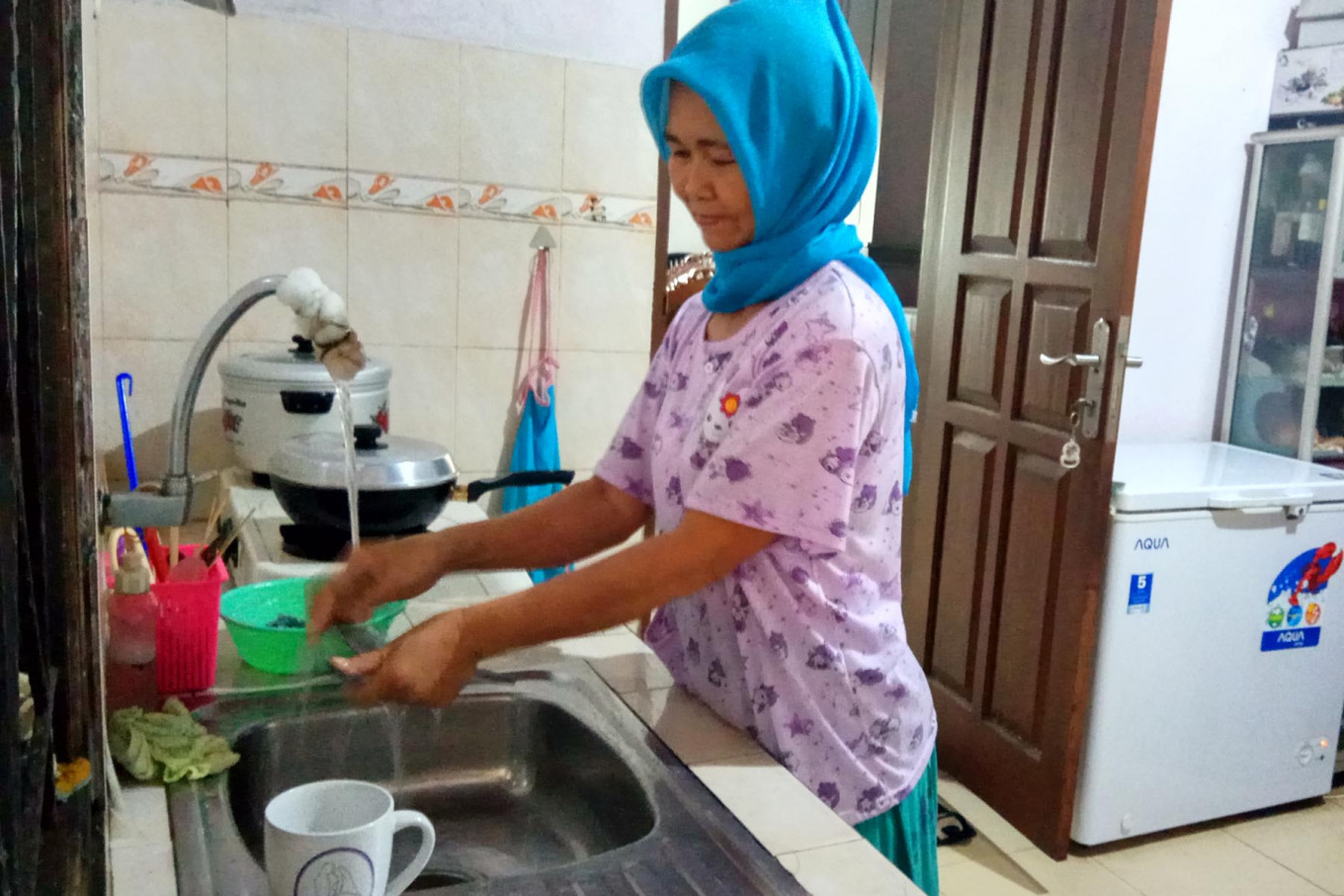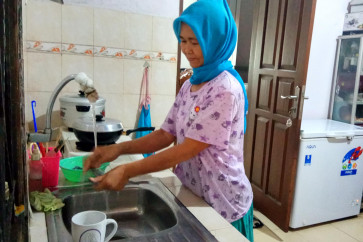Popular Reads
Top Results
Can't find what you're looking for?
View all search resultsPopular Reads
Top Results
Can't find what you're looking for?
View all search resultsDomestic worker protection bill: Yardstick for humane, mature society
It has been 17 long years, and we can no longer afford to ignore the proverbial elephant in the room on the pretext that domestic workers are inherent in our social culture.
Change text size
Gift Premium Articles
to Anyone
I
t’s the elephant in the room and it has been for 17 years. Domestic workers continue to portray modern slavery. Yet somehow, we are still beating around the bush when it comes to protecting their basic rights.
The deliberation of the bill on protection of domestic workers (RUU PPRT) must be accelerated in order to establish solid ground for acknowledging and protecting the rights of domestic workers. The “business as usual” approach will not move the needle on passing a bill that has been sitting idly at the House of Representatives for almost two decades.
Domestic work is one of the oldest types of work, according to the International Labour Organization (ILO). Internationally, domestic worker protection was enshrined in ILO Convention No. 189 on decent work for domestic workers, adopted on June 16, 2011, which was championed by then-president Susilo Bambang Yudhoyono.
Unfortunately, 10 years since the president’s hopeful speech at the international forum, Indonesia still has not ratified the convention or passed a law to protect domestic workers. While a ministerial regulation exists, it is still far from adequate. Indonesia lags behind its peers like the Philippines and South Africa, which already have firm legal instruments in place on this matter.
This fact is even more ironic on considering the significance of domestic workers in Indonesia, in terms of both their number and economic impact. The data estimated that there were 4.2 million domestic workers in the country in 2015 and 9 million Indonesian migrant workers overseas in 2017, mostly working as domestic helpers.
Migrant domestic workers are an important source of foreign exchange and thus international capital inflows, while the services provided by domestic workers have ensured that socioeconomic activities continue to function in countless households, from a president’s to that of blue-collar workers. Historically, domestic workers have been ubiquitous in our labor-abundant country and consequently, a prominent thread in our sociocultural fabric.
It is disheartening that cases of violence, discrimination and exploitation targeting domestic workers continue to occur. The National Advocacy Network for Domestic Workers (Jala PRT) has found an upward trend in violence against domestic workers in 2012-2020, with cases ranging from psychological abuse to economic exploitation and to physical and sexual violence. It is no a coincidence that a significant portion of Indonesia’s domestic workers is made up of women and children.



















